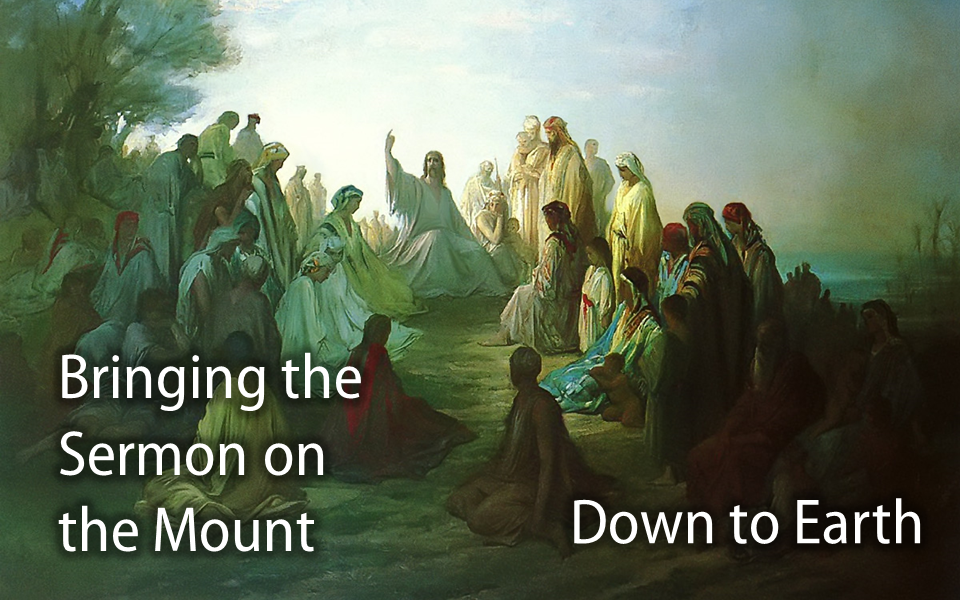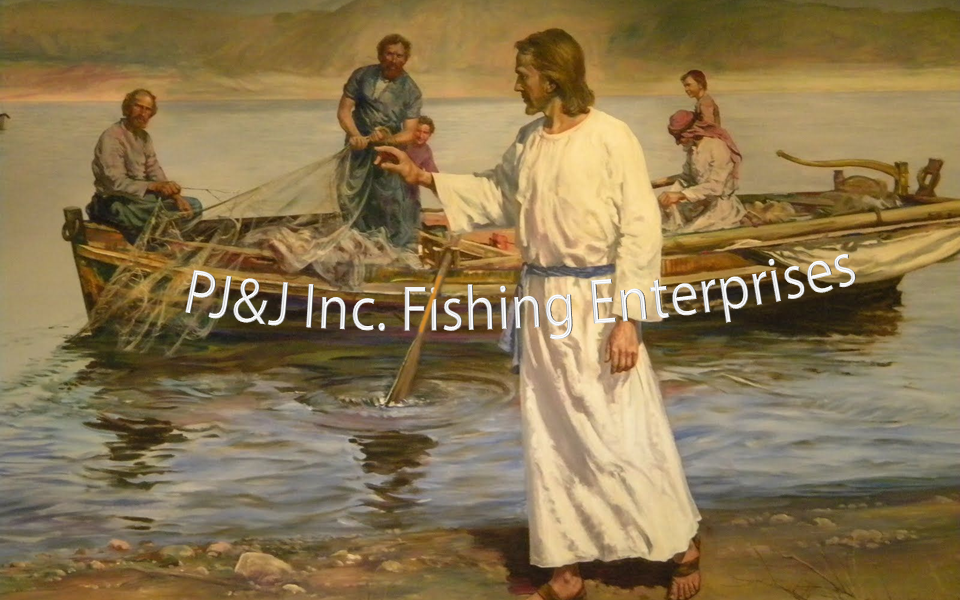Hespeler, 13 February 2022 © Scott McAndless
Jeremiah 17:5-10, Psalm 1, 1 Corinthians 15:12-20, Luke 6:17-26
If you are like most Christian readers, something probably feels a little bit off when you get to the sixth chapter of the Gospel of Luke. Jesus turns towards his disciples, opens his mouth and he says, “Blessed are you who are poor, for yours is the kingdom of God. Blessed are you who are hungry now, for you will be filled. Blessed are you who weep now, for you will laugh.” And you say to yourself, “Hey, that’s not quite right.” Because you know those words, you’re pretty sure you’ve heard them before, but they weren’t exactly like that. Maybe you even grumble a bit about modern translations and how they seem to rob the words of their poetic power.
You’re Thinking of Another Passage
But actually, there is nothing wrong with the translation and yet you are still absolutely right. You have heard those words before and they weren’t quite like that. The words of Jesus that you are thinking of, that you are much more familiar with, are found in another gospel. In the fifth chapter of the Gospel of Matthew Jesus turns to his disciples and he says, “Blessed are the poor in spirit, for theirs is the kingdom of heaven. Blessed are those who mourn, for they will be comforted... Blessed are those who hunger and thirst for righteousness, for they will be filled.” And those are the words of Jesus that people remember and memorize and repeat to comfort themselves.
And there is a good reason why people are so attached to the words that come from Matthew’s Gospel. They seem to be deeply spiritual as they challenge us to elevate our soul and to aspire for the deeper mysteries of the kingdom of God. We may not be entirely sure what it means to be “poor in spirit,” but it certainly sounds like something we should want to be. We may not be entirely sure that we actually hunger and thirst for righteousness’ sake, but we’d like to.
A Different Reaction
But when we turn over to those sayings in Luke’s gospel, we just don’t have the same emotional reaction to those words. I mean, yes, they are very nice sentiments. We would certainly like people who are poor to be blessed, for hungry people to get some food and for people who are weeping to be able to laugh. Everyone needs a good laugh from time to time. But those blessings seem so mundane and down to earth. They don’t stir our hearts in quite the same way.
As you can imagine, people have long wondered how it happened that we should, in these two gospels, have such different versions of what seem to be the same sayings of Jesus. It’s hard to imagine that this could just be a case of two people hearing the same words and mistakenly writing them down so differently. No, I think it’s pretty clear that the writers of these gospels have gone out of their way to present these words of Jesus in the way that they have.
Gospels aren’t Just Historical Accounts
Here is something you need to understand about the Gospels. They were never intended to be straightforward historical accounts. The job of the gospel writer is not simply to tell you the things that happened to and around Jesus exactly as those events took place. It is pretty clear, when you look closely at these books, that they had a much more important goal in mind. Their job was to communicate to you as best as they could their understanding of who Jesus was and what he stood for. They were each working, as the Holy Spirit inspired them, to present the unique understanding and angle that had been given to them. When you study these books closely, it’s pretty easy to see how they have done things like moved events around, reworded some of the sayings and done other similar things in order to accomplish that goal.
So, on the one hand, I would definitely argue that both Matthew and Luke were doing their very best to represent what it was that Jesus was teaching his disciples. But, on the other hand, they are far less concerned with getting the wording exactly correct than we may be expecting. But, even more than that, I believe that they are doing it all very transparently, that they are openly signaling their intentions.
Matthew’s Context and Setting
The famous, more familiar words of Jesus in Matthew’s Gospel are presented in a very specific context. Matthew tells us at the end of chapter 4 that Jesus was traveling all over Galilee and that he was attracting huge crowds, especially crowds of those who were “sick, those who were afflicted with various diseases and pains, demoniacs, epileptics, and paralytics.”
So, Jesus has been constantly surrounded by people who are in deep need, and he’s been trying to do his best to respond to them where they are. But then, as chapter 5 begins, he climbs to the top of a high mountain and there he turns and begins to speak to his disciples. That is why, of course, the discourse that follows over the next three chapters is called the Sermon on the Mount.
A Symbolic Mountain Top
The symbolism of such a setting should not be underestimated. The entire point of it is to make sure that we understand that everything Jesus is saying is meant to elevate us to think on heaven and its realities. He is raising our eyes and our minds above the drudgery of everyday life to proclaim to us eternal and spiritual truths.
He wants us to strive towards spiritual health rather than being concerned with the health of the body. He wants us to lay aside the earthly hunger we suffer from when we have no food and to hunger and thirst instead for what is right. He promises, yes, that the meek will inherit the earth. But if they are that meek, it’s hard to imagine them ruthlessly exploiting what they have inherited like we often do today. And the peacemakers, they may be making their peace on earth, but they are apparently shining far above this present realm as children of God.
Different Perspectives
And all of this, I need to stress, is absolutely true to who Jesus was and what he stood for. And this aspect of Jesus’ character is both eloquently captured and presented in these beatitudes, the opening passage of the Sermon on the Mount. But, at the same time, we mustn’t forget that this captured a certain aspect of Jesus’ person and message.
It is true of any individual that they are more than what a certain person might experience of them. For example, I might have a good friend whom I have always experienced as a lighthearted and humorous sort of person, you know the kind of guy who’s always telling a joke or finding something to laugh at. But somebody else might know that same person in a very different context, perhaps in the workplace where they hold down a very demanding and difficult job. Their workplace associate might know them as a very different, much more serious type of person.
Both I and that work associate could give our own description of this person and they would be radically different descriptions. And yet, at the same time, we can both be absolutely correct because no one single person’s point of view of somebody can possibly encompass the whole of that person. And if that is true of just any person, how much more is it true when we are talking about somebody as extraordinary as Jesus?
Luke’s Different Setting

So, we really should not expect that Matthew would have entirely captured everything that Jesus taught even in this most extraordinary passage of the Sermon on the Mount. And that is why, by God’s grace, we also have the Gospel of Luke. I think there is no question that Luke is, in this passage, attempting to present to us the very same teaching of Jesus that we have received from the Gospel of Matthew. How exactly this teaching has been preserved and handed down is another question that we don’t necessarily have the time to dig into. But I have no doubt that this is indeed a teaching from Jesus.
But the writer of the Gospel of Luke also wanted to do his best to present his own understanding of what Jesus was trying to teach. And I believe that he also goes out of his way to signal to us what perspective he is taking on this teaching. Matthew told us that Jesus went up the mountain to teach his disciples, well Luke kind of says the opposite. “He came down with them and stood on a level place, with a great crowd of his disciples and a great multitude of people from all Judea, Jerusalem, and the coast of Tyre and Sidon.”
So, where Matthew told us that Jesus went up the mountain to deliver this lesson, Luke tells us that he came down from the mountain and into the midst of the people. I would like to suggest, therefore, that what Luke is saying to us is that he’s going to tell us how the great and spiritual teachings of Jesus that might seem so far above the mundane concerns of this world take on new meaning when you bring them down to earth.
How the Setting Changes the Meaning
And, in that context, the words are greatly transformed. Instead of speaking in exalted terms about the poor in spirit, we are told that Jesus turned and spoke directly to the poorest and most destitute people in the crowd saying, “Blessed are you who are poor, for yours is the kingdom of God.” And, yes, Jesus may have been very concerned to bless those who hunger and thirst for righteousness, but when he got down onto the flat place and he looked at the people who were nearly starving to death, of course he knew that that also meant saying to those people, “Blessed are you who are hungry now, for you will be filled.”
I realize, of course, that the words in Luke's gospel might come across as a little less poetic, a little less inclined to make one think of heavenly truths, but they are the truths that demand our attention when we actually pay attention to the misery that people are often living in in this world.
And, even more important, Luke is not afraid to do what I suspect Matthew might have been a little afraid of and look at the other side of the story. He understood that you cannot allow the poor and the meek to inherit the earth, not really, without it having a detrimental effect on the rich, the well-fed and those who laugh at the adversity of others. So, yes, Luke was not afraid to explain that this teaching also brought woe and even curses to those very people. For the kingdom could never come into its power without the first becoming last so that the last could become first.
Why So Many Gospels?
People often wonder why it is that we have four different gospels when they all tell the story of one life and death and resurrection. They especially wonder that when they realize just how similar the first three, Matthew, Mark and Luke, are. In several passages, those three gospels repeat the sayings of Jesus or tell the stories about him using exactly the same words verbatim. Wouldn’t it make more sense, people wonder, to just have one gospel to tell the whole story? But I am extremely grateful for what we have been given. You can’t think that one writer’s take on the teachings of Jesus could possibly capture everything that he stood for. We need Matthew to take us up to the mountaintop with his beatitudes and we need Luke to bring us back down to earth.
And perhaps we need to take a key lesson from the specific passage in Luke today. Any spiritual teaching that we may embrace may indeed lift our thoughts up to the heavenly places, but do not fail to bring those teachings back down from the mountain and onto the plain because any faith that does not also demand that we take thought for what we are doing to practically help the poor, the hungry and those whose lives are nothing but tears is not a faith that is seeking to live according to the whole teaching of Jesus.

